In spite of the rich trying to sell football as a method to control the masses, the marginalized have used the same weapon owned by the rich to voice their opinion.
How the rich weaponized football
Recently La Liga Chief Javier Tebas launched a scathing attack on the occasion of the Spanish federation organized Copa Del Rey being held in Saudi Arabia. Javier Tebas alleges the Saudi monarchy of using football as a means to “whitewash” their reputation of being a human right abusing nation.
It is not quite clear how much evidence Tebas’ allegations hold but it can be safely said that time and again history has remained witness to football and sports in general being used as a political tool.
Luis Rubiales immediately came in defence of the CDR being held in Saudi and claimed football is being used as a part of “social change” as for the first time men and women were allowed to sit together in a Saudi stadium.
Iraq’s historic Asia cup triumph turned into George Bush’s campaign weapon
The 2007 AFC Cup victory was landmark in Iraq’s history. Amidst ethnic factionalism and a military invasion by the US, the Iraqi national team did exceptionally well to win the biggest football tournament in Asia.
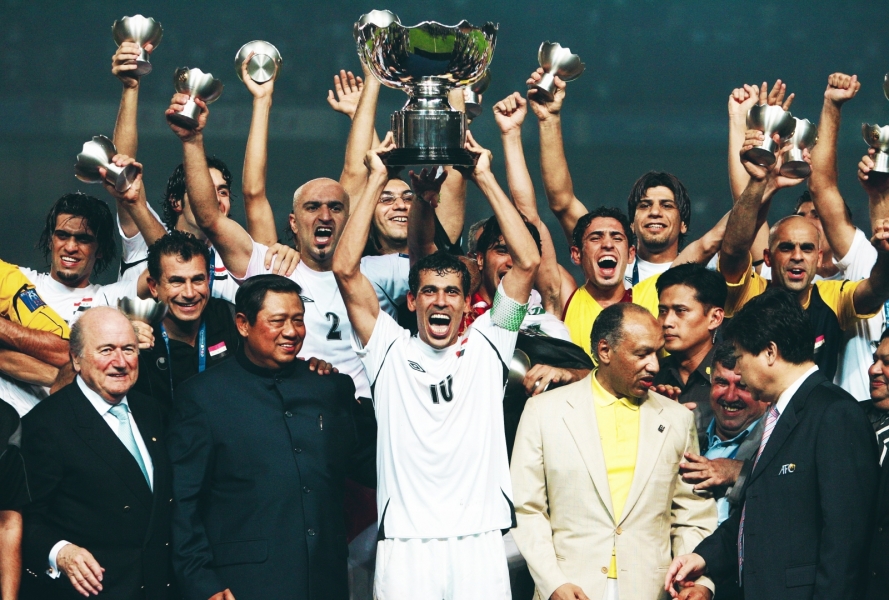
The then US president George W. Bush didn’t shy away from shamelessly disguising the Iraqi voices to fit into his campaign narrative. George W. Bush not only turned football into his campaign weapon but he weaponized the success of Iraq’s Asia Cup campaign to give an idea of how American intervention is working for the betterment of the Iraqi people.
A tainted 2022 World Cup
130 million people – that’s how many people follow the FIFA World Cup. For fans and players all around the world, the FIFA world cup is the ultimate platform, it is a place which runs high on adrenaline and emotion. It is an absolute shame that FIFA has somehow managed to ruin the reputation and the significance of the coming 2022 world cup.
It was a massive shock when Qatar won the vote to host the 2022 World Cup, main concerns being the climate, huge cost of the world cup, Qatar’s almost nonexistent football history and glaring human rights concern.
Qatar’s horrific treatment of labourers, starting from keeping labourers in unsanitary camps to not paying them salary and destroying their contracts have time and again been reported by media houses.
In spite of FIFA’s inclusionary policies the 2022 World Cup is going to be hosted by a country where homosexuality is punishable by death. All these have already made life difficult for FIFA from a PR and marketing perspective, but then in 2019 banned UEFA president Michel Platini was detained by French officials on possible corruption charges. Quite naturally Platini denied any wrongdoing.
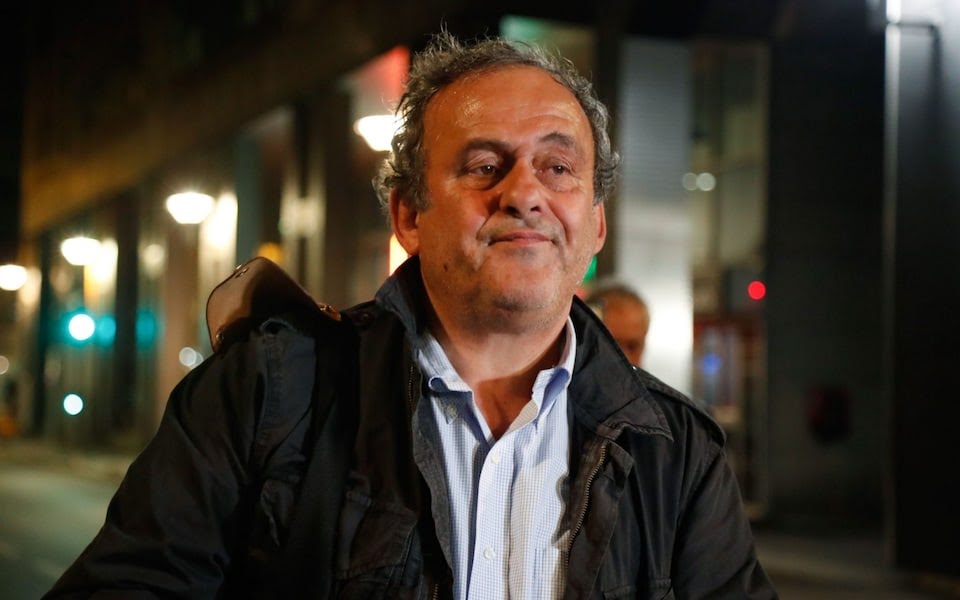
He was detained at the Anti-Corruption Office of the Judicial Police outside Paris. The arrest represented the first substantial public move in an investigation into the 2022 world cup opened in 2017 by France’s Parquet National Financier, which is responsible for law enforcement against serious financial crime.
On June 2014, The Sunday claimed to have obtained documents which shed light on further corrupt dealing between FIFA and Qatari officials to support the World Cup bid on Qatar’s behalf. It was claimed by TST that Mohammad Bin Hammam who was President of the Asian Football Confederation at the time had paid more than 5 million US Dollars to football officials to support Qatar’s bid.
The biggest event on Earth and its reputation has been successfully tainted by powerful and rich Qatari officials and FIFA senior office holders.
The fight to reclaim football
Most European and Latin American countries have football as a part of their cultural lives, and it is a redundant argument to say that football should not be involved with politics.
The beautiful game which has integrated so much into the lives of the masses that culturally it is a point of discussion and discourse in every salon, bar and coffee shop, such a phenomenon should not and cannot be kept apolitical.
However, question remains that is football a nice platform for rebellion, a political tool to keep the populace under control or is it just a sport that has been appropriated so much by popular culture that the rise of authoritarian governments all over the world automatically lead to football being a stage for outrage.
Football has been a stage for the longest time to voice one’s opinion, although that is not a popular opinion.
Racism in Italy
The Italian Serie A recently has seen numerous instances of racism. Their main victim being Mario Balotelli. In the game where Brescia played against Verona, Balotelli allegedly was subjected racial monkey chants, a disgusting thing to have happened.
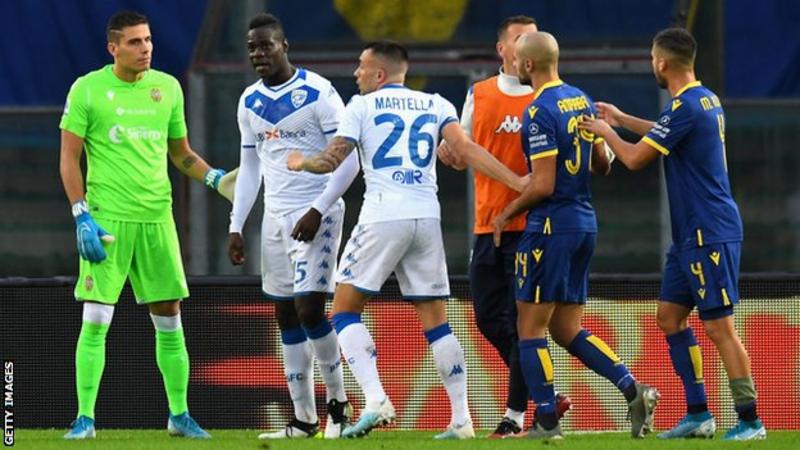
Subject to such unacceptable, Balotelli was ready to leave the playing field. Upon being stopped by players of both the team, Balotelli read a letter out to the fans of Verona which was greeted by immense whistling.
After the match, leader of Verona’s supporter group Luca Castellini later claimed that the Italian national can never be “completely Italian”. Alarming statements given Mario Balotelli’s parents are Ghanaian.
Popularly, Balotelli’s reaction is being considered as excessive in nature and that the Verona fans were just passionate about their teams. A country where casual racism is the norm and the far right government quite openly discriminates on racial grounds, Balotelli’s remarkable protest has already made its place in the pages of history books.
Strike after Ronaldo’s transfer
Ronaldo’s €112 million transfer from Real Madrid to Juventus sparked protests in Fiat Chrysler’s Melfi plant. Although two separate businesses, Fiat Chrysler and Juventus are both owned by the Agnelli family.
The hefty price tag of Cristiano Ronaldo in an inflated market meant Chrysler was set to miss out on crucial investments. Amidst economical hardships of the workers such a move was naturally unwelcome. The strike was proposed to be for more than one and a half days bringing Fiat’s Melfi plant to a standstill.
Xhaka and Shaqiri’s show of defiance
Granit Xhaka and Xherdan Shaqiri’s double hand eagle gesture after celebrating a goal against Serbia in Euro 2018 also received backlash from the Serbian fans. Granit Xhaka and Xherdan Shaqiri were fined 10,000 swiss francs whereas Stephan Lichtsteiner had to pay up 5000 swiss francs for joining in the celebration.
They themselves fleeing Kosovo and witnessing first hand Serbia inflicted genocide upon Kosovo, it is understandable why the two Swiss players would come up with a gesture that signifies their ethnic Albanian heritage. Granit Xhaka and Xherdan Shaqiri will forever remain in the hearts of those 1.2 – 1.45 million Albanians displaced during the Kosovo war.
During the pre-season of the 2017-18 season in a friendly against French club Paris Saint Germain, Tunisia’s club Africain fans held up a tifo which read, “CREATED BY THE POOR STOLEN BY THE RICH”. A bold statement made by a club whose international fame is nonexistent.
India’s platform to express herself
India has been witnessing protests all over the country after their government introduced a draconian citizenship law. In India’s league football, the I-league, one of the biggest games is the Kolkata Derby played between Mohun Bagan and East Bengal.
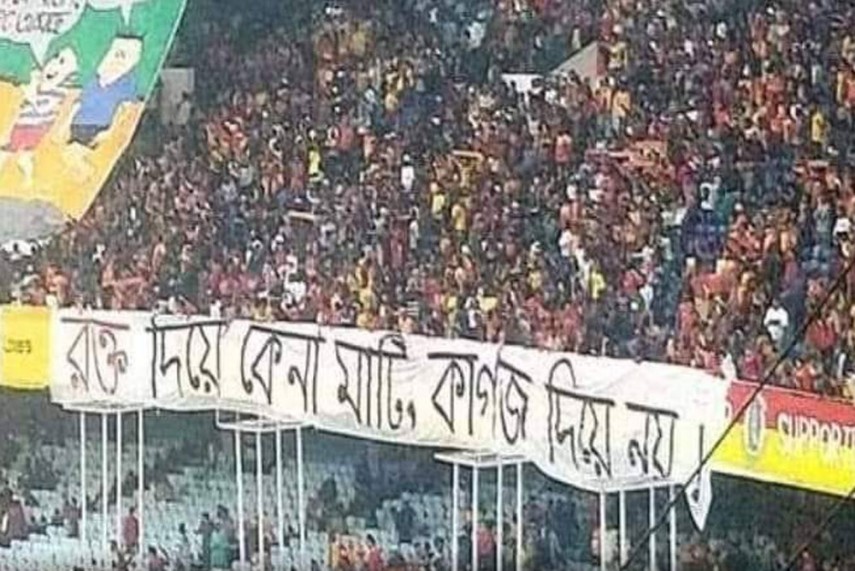
The significance of the clubs lies in their supporter bases, Mohunbagan is traditionally supported by the Ghotis or the westerners who stayed over in India during the partition of India in 1947 and East Bengal supported by the Bangals or the refugees who came over to India during the partition.
The most recent Kolkata Derby held on 19th January saw tifos which were specifically designed to protest the citizenship law. Mohun Bagan is also a club whose 1911 IFA Shield victory was something that upheld the revolutionary that was already brewing in India to seek Independence from British colonialism.
A fight still to be won
“The bottom line is football has become a business and as a business it looks for income,” Ernesto Valverde, had said upon arriving in Riyadh for the semifinals of the Copa Del Rey. “That’s the reason we are all here” – his words give us light of an unfortunate situation where football all over the world is being played to make the rich richer.
Football clubs have become a breeding ground for revenue generated through various marketing and sponsorship deals. The grossly inflated transfer market makes zero sense given economical conditions around the world. The fixture congestion is an automatic outcome of the broadcaster’s desire to profit from the unquenchable demand for endless football games.
The way players are demanded to play starting from midweek cup fixtures to weekend league games that it is a surprise that it does not break the labour laws in any country although the huge wages might compensate for the immense physical demands.
Amidst all these there is a trend to be noticed among all of the aforementioned incidents, that football has historically stood against the oppressors.
Football, the fans, the teams and the players through various means have stayed on an honest path, it has been a voice for the voiceless and especially it has disturbed those who thought football can be owned. Football has shown us time and again that in spite of the rich and powerful trying to weaponize and monetize it, football will remain a tool for the mass to express themselves and it will always let the unheard voice their opinions.
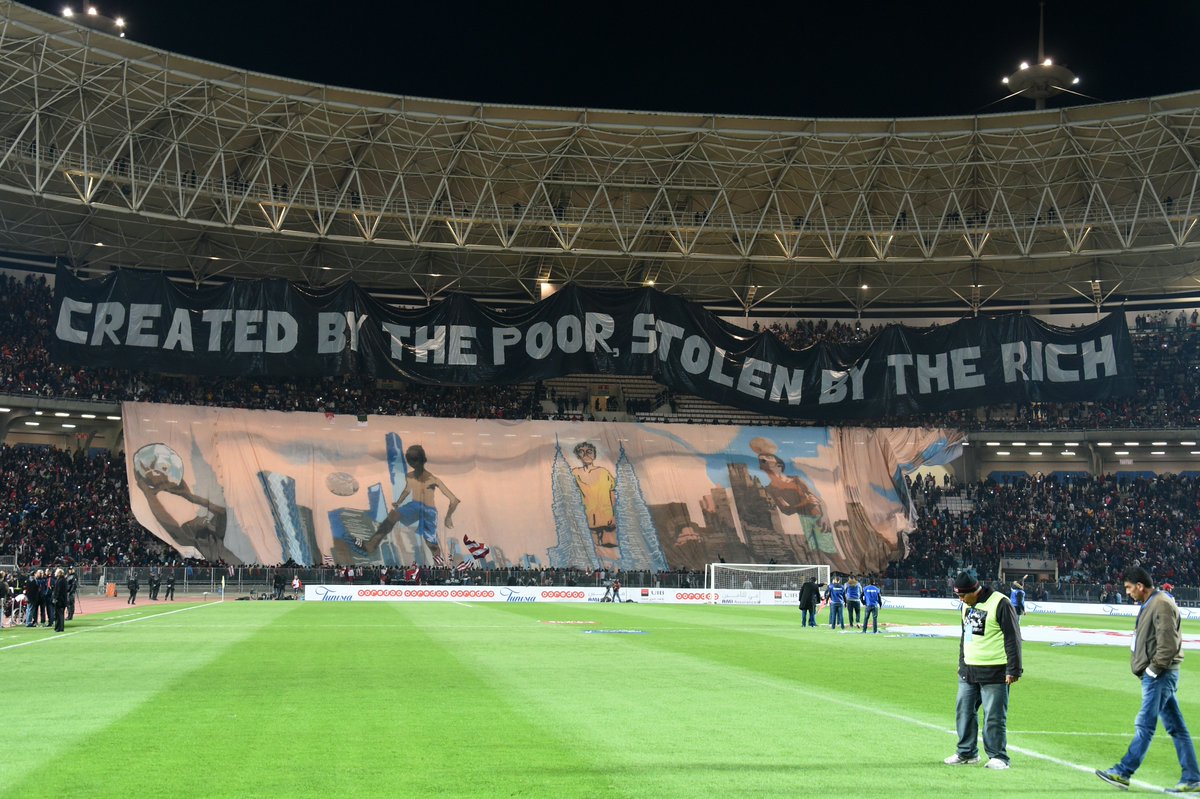


Beautiful write up..more information…easy language thatswhy everyone can understand….